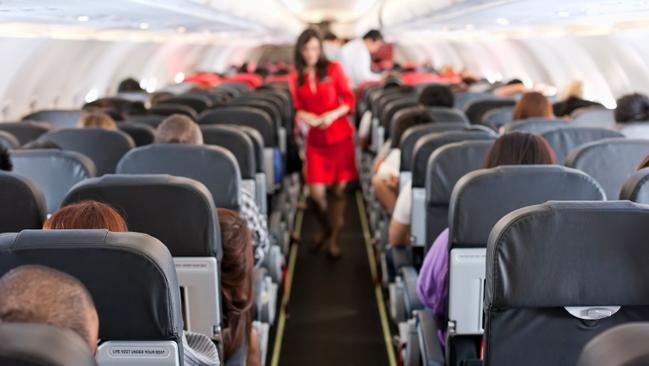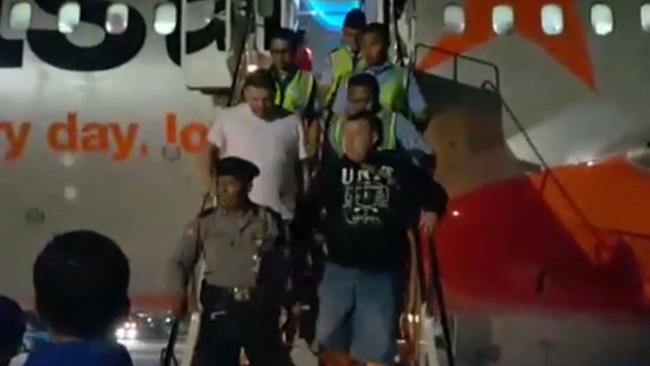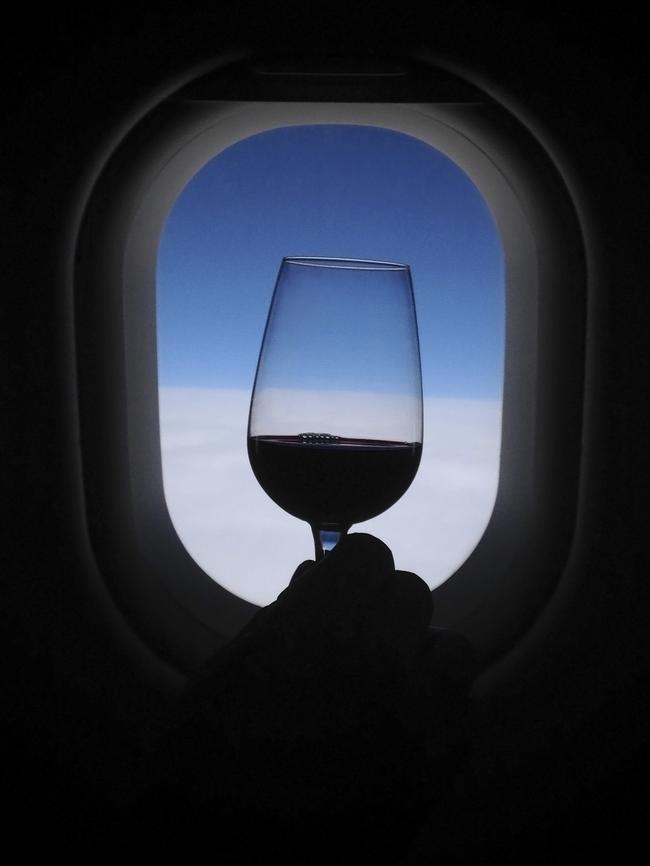Should alcohol be banned on planes?
It’s time to stop serving booze on planes. The party’s over and last orders should be called in the air. We need to stop fooling ourselves and take the effects of excess alcohol seriously.

Rendezview
Don't miss out on the headlines from Rendezview. Followed categories will be added to My News.
When something isn’t broken, you leave it alone. When an issue is repeatedly causing damage, distress and danger, it’s time to reassess.
Hundreds of intoxicated travellers have tried to escape from planes, and have smashed windows. They’ve banged on cockpit doors. One inebriated man on a flight to Australia tried to steal alcohol from a trolley and became so loud and abusive that crew had to restrain him with plastic cuffs, redoing them four times.
A series of intoxicated incidents has meant that planes have had to be diverted costing airlines tens of thousands of dollars, such as the incident on board a Jetstar flight on Wednesday night. The flight from Sydney to Phuket was forced to divert to Bali when six men were involved in a drunken brawl. Trikora Harjo, the General Manager at Bali’s airport, said that the men — Bradley Beecham, Brett Eldridge, Michael Matthews, Mark Rossiter, Lynmin Waharai and Ricky William — “were found to be drunk and that three of the five involved in the melee had smelled of alcohol”.

It begs the question: why is alcohol still allowed on planes?
With alcohol-fuelled violence on our streets, drink-driving and road rage increasing, it is hardly surprising that air rage is also on the rise. People are angry and alcohol makes it worse.
Why are airline staff put in the dangerous position of managing such dangerous behaviour when we can’t manage it on the ground? Taking a “zero-tolerance approach” is all very well, but at some point it will be too little, too late and the real cost of boozing in the air will be more shocking than its price.
Unlike a bar where tensions are rising and fists begin to fly, you can’t simply walk away when you’re 30,000 feet in the air and trapped in a confined space. It doesn’t make for safe air travel. Isn’t travel stressful enough without the added “what if”?

Planes are dehydrating so drinkers are tempted to drink even more alcohol. Studies have shown that at high altitude, the strength of alcohol is doubled. Are people factoring this in if they have to drive at the other end of the flight?
In an emergency situation, passengers need to be able to take instructions and remain calm and it has to be considered that alcohol can heighten aggravation and aggression.
There was a time when smoking was allowed in cinemas; it seemed like a good idea at the time. Passive smoking is unhealthy and certainly irritating but is a fire in a cinema more dangerous than a plane which is at the mercy of a drunken, out of control passenger? Is fire more dangerous than alcohol-fuelled rage? Danger doesn’t have to be the same to make reach an equivalent level in risk assessment.
Smoking used to be allowed on buses, in restaurants, lifts and even on underground trains; that seemed like a good idea at the time too. The world changes.
Drinking alcohol on planes? It’s time for it to stop. The party’s over and last orders should be called in the air.
It’s time we stop fooling ourselves, drowning our denial and take the effects of alcohol seriously. It’s time alcohol, like cigarettes, was banned on planes.


